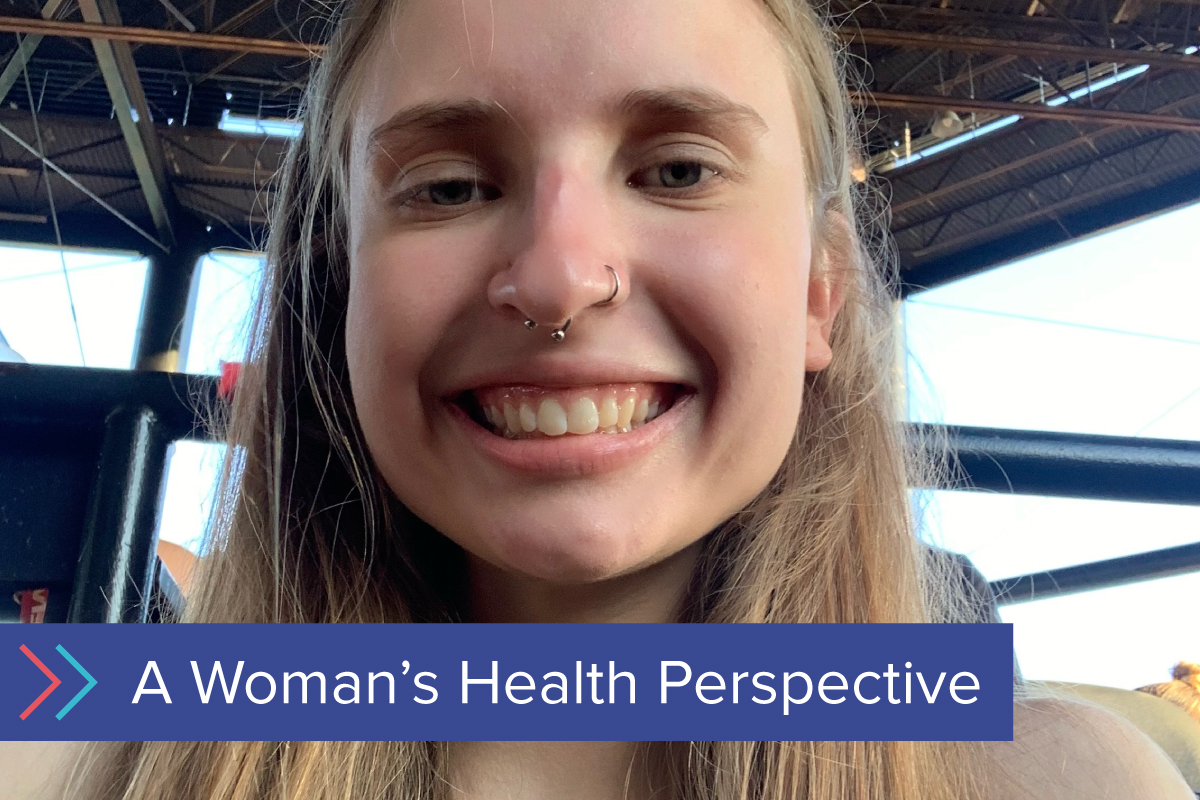This is a firsthand account submitted through SWHR’s Share Your Story portal, as part of SWHR’s Women’s Health Perspective series.
I was 17 when my gynecologist told me I didn’t have a uterus – that I was born without one, in fact. Confused and angry, I wondered how this could have happened. How can I just not have one? I was missing a vital organ of the reproductive system.
I soon learned that the condition was called Mayer-Rokitansky-Küster-Hause syndrome (MRKH). It affects 1 in 5,000 women and one of the first symptoms is primary amenorrhea (the absence of menstrual periods). This is what prompted me to go to the gynecologist’s office at 16 years old. I was concerned that I hadn’t gotten my period yet, not even a little bit of spotting.
They first put me on hormonal birth control for three months to see if that would induce bleeding or menstrual symptoms. It didn’t. When the three months were up and nothing had changed, I was taken in for an ultrasound to see what was going on. That’s when I found out.
I was diagnosed with MRKH syndrome. They said there was no primary cause, but strong indicators pointed to a genetic factor. MRKH syndrome happens when the reproductive system doesn’t develop in the womb properly. Because of this condition, I will never be able to get a period or have a pregnancy or experience childbirth. This also means that I have a shortened vagina (because it didn’t develop properly) and I would have to use a special tool called a dilator to help me “create a wider opening.”. Without this tool, sex would be impossible. In some more severe cases, some women opt to get surgery to help. I have decided to wait and only go that route if in the future I feel the dilator won’t work.
Learning all of this at 17, before I even graduated high school, took a big toll on my mental health. I went to therapy and tried to cope with all my feelings. I searched the Internet to find support groups. I cried and got angry, too.
I think one of the hardest parts of having a rare disease is the fact that nobody can understand how you feel, except yourself. Nobody will ever be able to say the right thing. I’ve heard people say, “Well, at least you don’t have to deal with your period,” or “there’s always adoption or surrogacy.”
That maybe be true, but for me, it’s not about being able to have biological children or about getting to experience a period. It’s about the fact that a part of me is missing. A part of the body that most women have – but I don’t – and because of this, sometimes I feel like my body betrayed me, and I am not normal. It’s about the emotional aspect of having something missing. And it feels as if nobody understands that. But I understand it. And if another woman told me the same thing, I would know exactly how she felt.
I am 19 now, and this is still something I am coping with. I believe there is an underlying reason why I have MRKH syndrome, whether it be genetic or some other health condition that influenced this one. I was born with a lot of serious health conditions, some of which developed while I was in utero.
There is still a lot I don’t know about MRKH syndrome and want to continue to learn. I know there are going to be a lot of ups and downs throughout my life.
I want to connect with other women out there who have been diagnosed with the same thing, to support each other but also find connecting factors as to why so many women have this condition.
I am not ashamed. This is the first time I am speaking out about it, and only a few close family members of mine know. There is nothing wrong with having this condition, and it is not something that could have been prevented.
